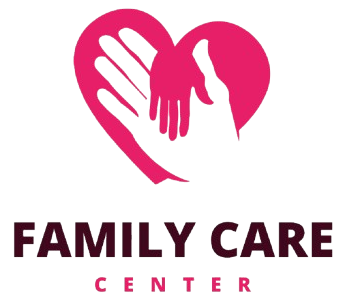Introduction to Miscarriage and Its Emotional Toll
Miscarriage is a common occurrence, affecting many individuals and families globally. It involves losing a pregnancy before the 20th week, which can happen without warning. The emotional toll can be profound, affecting not just the person experiencing it but also their partner and family. Understanding this emotional impact is crucial for healing. Miscarriage symptoms can bring about sadness, anger, and confusion. People often experience a mix of physical and emotional challenges, such as physical pain and emotional grief. Recognizing that both aspects are normal parts of the process can help in addressing them effectively. It’s essential to acknowledge these feelings and seek support when needed, as this can make the path to healing more bearable.
Exploring the Emotional Roller Coaster
Miscarriage can feel like an emotional hurricane. Those who experience it often talk about the overwhelming emotions they face. From guilt to anxiety, the emotions can be intense. First signs of miscarriage can trigger these feelings as they herald loss. Some people feel guilt, believing they could have done something differently. Others may feel anxious about future pregnancies. It’s important to realize that everyone processes emotions differently. Some might be ready to talk about it immediately, while others may take longer to open up. This variation is entirely normal, and respecting each individual’s unique emotional processing is key. No one should feel pressured to “move on” or “get over it” too quickly.
Cultural Perspectives on Miscarriage: The Indian Context
In India, cultural beliefs and practices have a strong influence on how miscarriage is viewed. Sometimes, these beliefs might add to the emotional burden. Family dynamics can play a crucial role in how individuals cope. In some families, there might be expectations to maintain silence about miscarriage symptoms. However, support can also stem from cultural practices, which often emphasize family solidarity and care. Traditional support mechanisms, such as extended family support or community rituals, can provide comfort. Modern resources like counseling are also becoming more available, helping bridge the gap between tradition and contemporary healing practices. Understanding cultural perspectives can aid in finding the right balance of support mechanisms.
Psychological Responses to Miscarriage: Short-Term and Long-Term
The immediate aftermath of a miscarriage can include shock and disbelief. This emotional distress can be intense, affecting mental health. People might experience early miscarriage symptoms as signals of this distress. Long-term, some face persistent anxiety and depression. These feelings can interfere with daily life and influence perspectives on future pregnancies. It’s important to recognize these emotions as valid. Seeking medical advice for missed miscarriage symptoms can be crucial for mental health. Mental health support can help manage these long-term symptoms, providing strategies to cope and heal. Acknowledging the need for both short and long-term care is vital for emotional recovery.
Recognizing and Acknowledging Miscarriage Symptoms
Recognizing miscarriage symptoms involves being aware of changes in one’s body. Early miscarriage symptoms like cramping or spotting are telltale signs. Some experience signs of miscarriage early, like a sudden loss of pregnancy symptoms. Missed miscarriage symptoms might not show immediately, as the body doesn’t always signal a loss. It’s vital to be equipped with this knowledge, as it can prepare individuals emotionally for these possibilities. Recognizing these symptoms allows for a timely emotional response and the ability to seek necessary support. Education on these symptoms empowers individuals to approach their emotional journey with preparedness and resilience.
Partnership and Solidarity: Supporting Each Other Through Miscarriage
The emotional impact of a miscarriage extends beyond the individual, affecting partners and families too. Feelings of loss and grief are shared, making open communication essential. Discussing miscarriage symptoms and their impact can foster mutual understanding. Couples benefit from supporting each other, adopting unified coping strategies. These can include talking openly about feelings and planning together for emotional healing. Families can rally together, offering an invaluable support network. Solidarity in partnership can strengthen the emotional resilience needed to cope effectively with loss. Together, partners can face the emotional journey, ensuring neither feels alone or unsupported.
Coping Strategies and Building a Support System
Coping with a miscarriage involves normalizing grieving and emotional expression. It’s okay to feel sad or upset; these emotions are natural and should not be suppressed. Seeking professional help, such as counseling, can provide guidance. Therapists offer a safe space to discuss feelings and learn coping techniques. Support groups create communities for shared experiences, helping people feel less isolated. Mindfulness and self-care are also important. Taking time for oneself, practicing relaxation techniques, and maintaining physical health can aid emotional recovery. Building a comprehensive support system is pivotal, allowing individuals to navigate their emotional journey with strength and hope.
Challenging Miscarriage Stigmas and Encouraging Open Conversations
Miscarriage sometimes carries societal taboos and stigmas. This can make open discussions difficult, adding to emotional strain. It’s vital to challenge these misconceptions. Sharing narratives and building community support can destigmatize this common experience. Open discussions about mental health related to miscarriage symptoms foster a supportive environment. Encouraging these conversations helps dispel myths, providing a clearer understanding of the emotional realities faced. As more voices contribute to this dialogue, societal attitudes can shift, promoting empathy and support for those affected by miscarriage.
Conclusion: Path to Emotional Healing After Miscarriage
The emotional journey following a miscarriage is challenging, but acknowledging and addressing both the emotional and physical miscarriage symptoms helps in healing. Facing these challenges openly encourages finding effective coping solutions. Support systems play a fundamental role in emotional recovery, providing channels for expression and understanding. Professional help can guide the healing process, offering strategies to manage grief and anxiety. Embracing hope and envisioning the possibility of future family planning bring comfort. Though the path may be arduous, the prospect of healing and rebuilding remains ever-present. In seeking support and allowing oneself time, individuals can find solace and strength for the future.
In this journey, remember you are not alone. There are paths to healing and support that can guide and comfort, bringing light to the path ahead.

